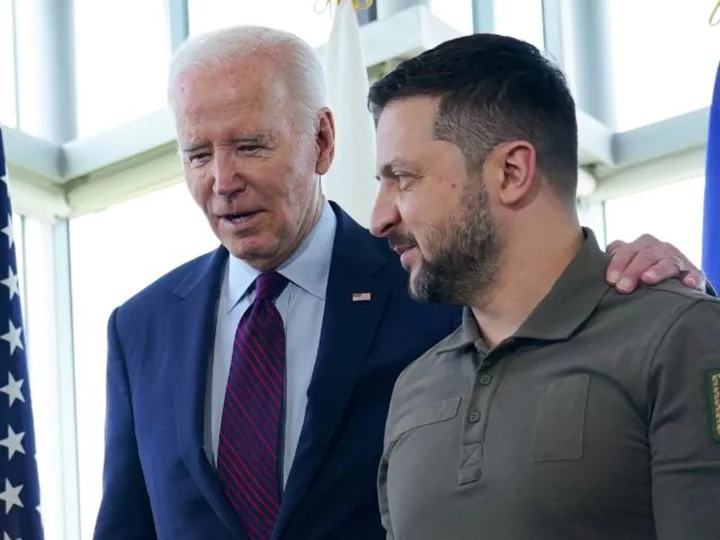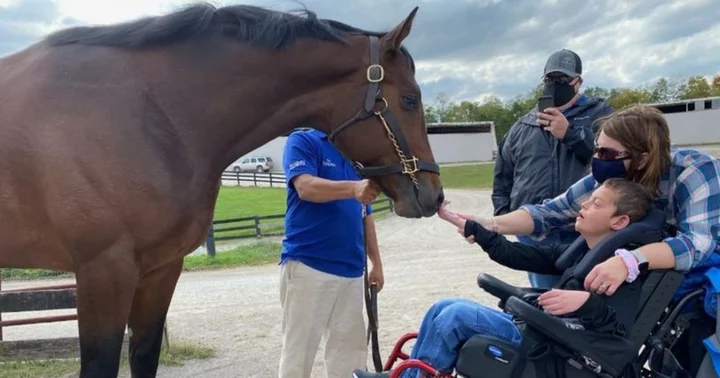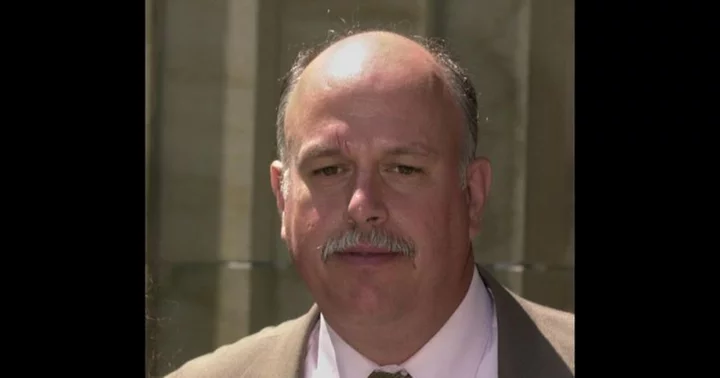A US court sentenced a retired Colombian military officer to life in prison for his role in the assassination of Haiti's president in 2021.
The United States says it has jurisdiction in the case because it alleges the plot to kill president Jovenel Moise was hatched in part in the US.
German Rivera, considered one of the leaders of the mercenary squad that shot and killed Moise in his residence outside Port au Prince, appeared before Judge Jose Martinez to hear the sentence.
Rivera, a retired captain, pleaded guilty last month to taking part in the plan.
On Friday, dressed in brown prison garb, with his feet and wrists bound, Rivera passed on an opportunity to address the court before the sentence was read out.
He was the second person convicted in the United States over the assassination, which plunged Haiti -- already plagued by poverty, gang violence, natural disasters, epidemics and a weak government -- further into crisis.
In June, another member of the conspiracy, Haitian-Chilean Rodolphe Jaar, pleaded guilty and was sentenced to life in prison for his role in supplying weapons to carry out the assassination.
The 53-year-old Jovenel was gunned down on July 7, 2021 at his private residence by a hired group of about 20 military-trained Colombians. His security detail did not intervene to protect him.
In February, US Attorney Markenzy Lapointe told a new conference that underlying the attack on Jovenel was a lust for money and power.
Lapointe said two managers of a Miami security firm, CTU, devised a plan to kidnap Moise and replace him with Christian Sanon, a Haitian-American citizen who wanted to become president of the Caribbean country.
In exchange for toppling Moise, they were promised lucrative contracts to build infrastructure and provide security forces and military equipment in a future government led by Sanon, also indicted in the United States, prosecutors said.
The plot at first was aimed at kidnapping Moise, but then evolved to assassination, according to court filings.
In Haiti a probe into the assassination has not led to anyone being put on trial.
Haiti has spiraled into deeper chaos since Moise's death. No election has been held and he has not been succeeded.
Gangs control around 80 percent of the Haitian capital, and violent crimes such kidnappings for ransom, armed robbery and carjackings continue to escalate in the impoverished Caribbean nation.
gma/dw/md









